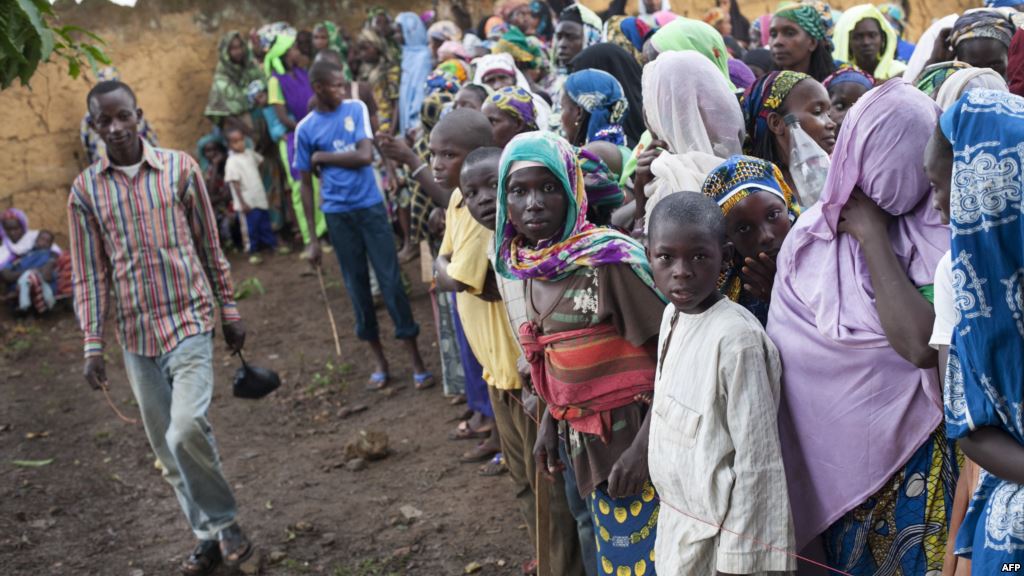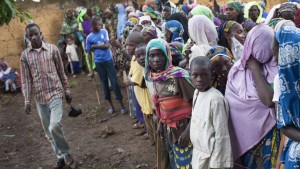
 The once easy and friendly relations between the local population in eastern Cameroon and the refugees from the Central African Republic are growing more and more difficult because of disputes over land and scarce food and water resources.
The once easy and friendly relations between the local population in eastern Cameroon and the refugees from the Central African Republic are growing more and more difficult because of disputes over land and scarce food and water resources.
Since 2013 when violence and political instability broke out in the Central African Republic (CAR,) an estimated 250,000 people have fled to Cameroon, according to the UN’s refugee agency, UNHCR.
The majority resettled in Cameroon’s East Region, where local communities initially welcomed them.
However, relations started to sour as the influx has placed serious strains on food stocks and available grazing land, reported IRIN humanitarian news and analysis, which also mentioned disputes over thefts of animals or crops by the refugees.
“Upon their arrival, we took them in with open arms,” said Peter Ngoti, a primary school teacher in Timangolo, a village located 30 kilometers from the border that is home to one of six refugee camps in the region.
“But then certain refugees began acting negatively. They would steal our crops. Others came with their livestock and destroyed our crops,” the school teacher told IRIN, which put the number of refugees settled in Timangolo at more than 8,000.
The arrival of thousands of refugees with new livestock has also meant disputes over the already limited plots of grazing land.
Refugees who have not been given plots for their animals end up “wandering” onto the land of locals, taking over the brush meant for local livestock and/or destroying crops, creating further tensions with host populations, who think they have already made many concessions for refugees by offering them space to settle, said IRIN quoting local activists.
For the authorities, the granting of land for a refugee camp is a temporary humanitarian measure. The locals, however, view it as if they were dispossessed of their land, at a time the refugees are receiving assistance not only from the host communities but also from UNHCR, the government as well as other NGOs.
Some activists argue however that the presence of refugees is often just an excuse for the local population to “vent their anger or frustration at the region’s security challenges and deep-rooted poverty.”
Camp authorities say such tensions could degenerate into perpetual conflict if nothing is done to alleviate the situation.
Beyond providing more food aid, which is continually limited by funding constraints, UNHCR says it has been trying to strengthen the empowerment capacity of refugees, facilitate socio-economic integration and provide grants to help develop income-generating activities.
“Whenever the opportunity arises, we remind refugees of their rights and obligations within the host communities,” Kassim Diagne, a UNHCR representative in Cameroon, told IRIN.
Efforts are also being made to provide host populations with the same resources being offered to refugees, including potable water.
Cameroon’s government says it is working to create joint committees that will involve leaders from the host communities and refugee populations to help with conflict management and dispute resolutions, IRIN said.
